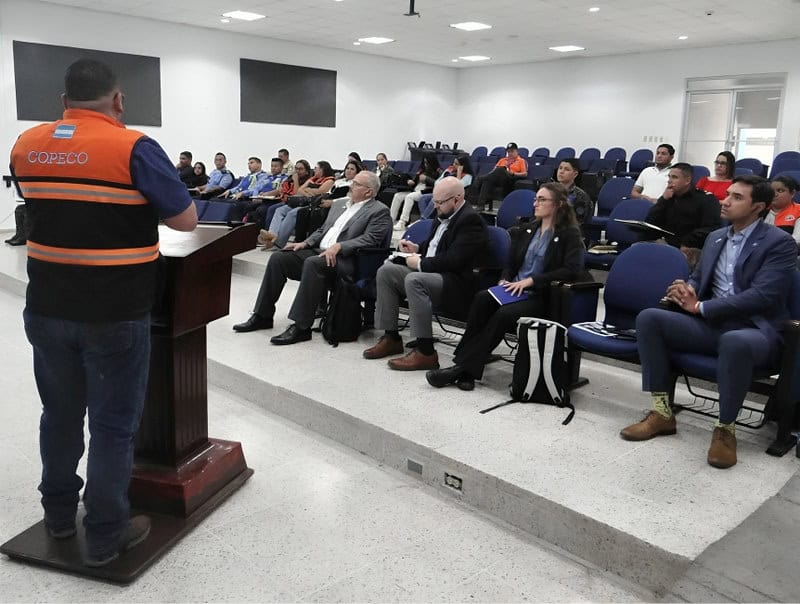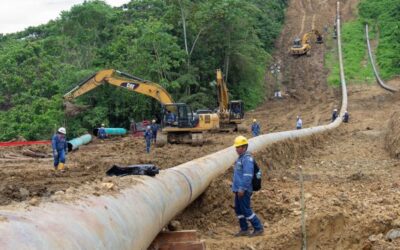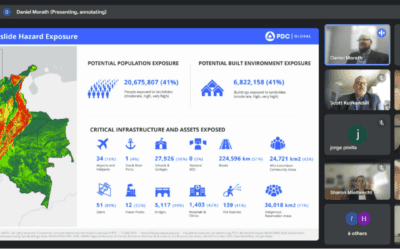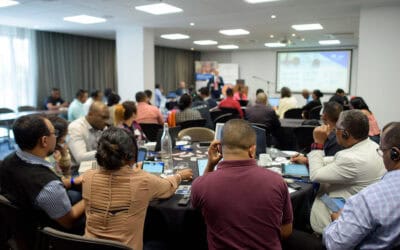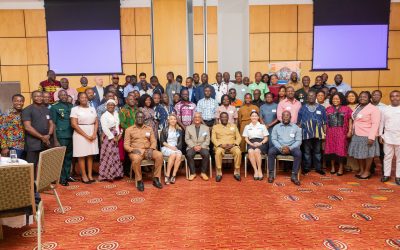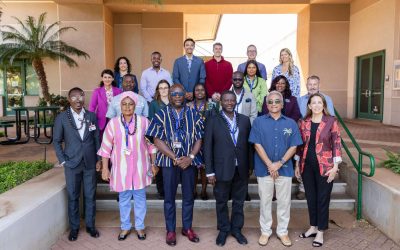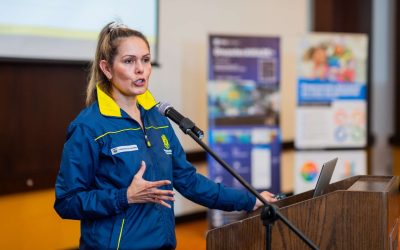Multiple agencies of Honduras gather to kick off a new partnership project with the Pacific Disaster Center to build readiness and resilience to multiple risks.
Photo Credit: Pacific Disaster Center (PDC)
Tegucigalpa, Honduras—Nearly a decade has passed since the Government of Honduras conducted a National Disaster Preparedness Baseline Assessment to evaluate disaster management capacity and the key drivers of risks and vulnerabilities throughout the country’s 18 departments.
Finalized in 2017, the effort was undertaken in partnership with Comisión Permanente de Contingencias (COPECO), the national disaster management agency of Honduras, the U.S. Southern Command (US SOUTHCOM), and the University of Hawai‘i’s Pacific Disaster Center (PDC). Unique assessment reports were developed in collaboration with the government of Honduras for each of the nation’s departments, as well as comprehensive national recommendations to maximize disaster management capacity and target the most effective risk interventions over a five-year period.
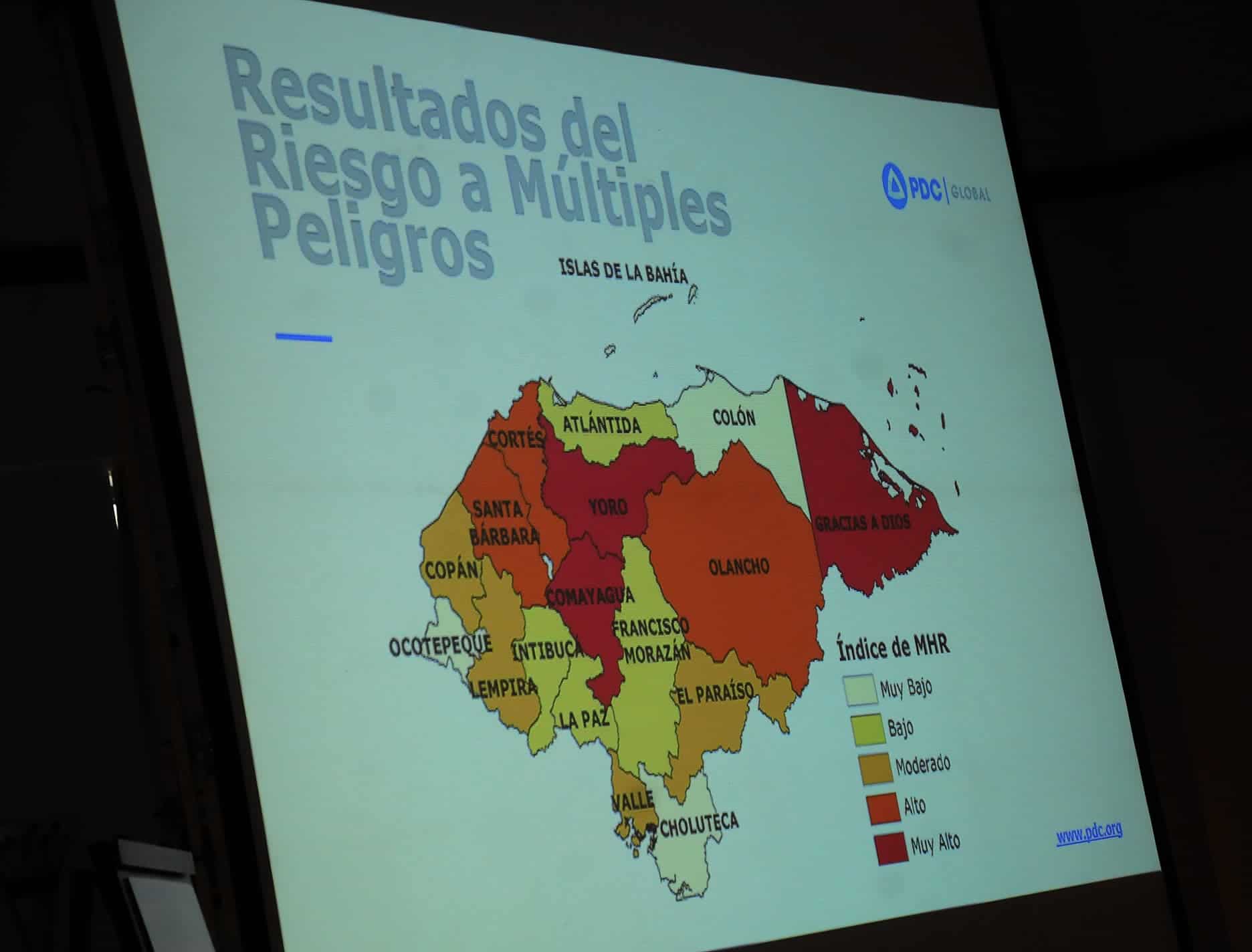
PDC and Honduras first collaborated in 2017 to assess and mitigate disaster risk throughout the nation.
Photo credit: PDC
Now, in 2025, a new evaluation is taking place between PDC and COPECO, with support from US SOUTHCOM, to analyze the efficacy of outcomes from previous efforts and identify new capability enhancements aligned with current needs. The new initiative follows a series of major disasters impacting Honduras over several years including outbreaks of Dengue and COVID-19, catastrophic impacts from tropical cyclones Eta and Iota, and several major floods, landslides, droughts, and wildfires.
“PDC is honored to be invited back to collaborate with our friends and colleagues at COPECO and to help enhance the capabilities of Hondurans to create risk-informed and resilient communities equipped to deal with the rising frequency and severity of hazards,” said PDC’s Disaster Management and Exercise Lead, Scott Kuykendall, during the kick-off of the Risk, Resilience, and Adaptation Analysis in Tegucigalpa, Honduras, on January 21-23, 2025.
The event was opened with remarks from the Minister Commissioner of COPECO, Vicealmirante José Jorge Fortín, the Senior Defense Official Defense Attaché, Colonel Miguel Gonzalez, and the Security Cooperation Office Chief, Colonel Allan Kent. The workshop was attended by 35 personnel from 19 different organizations including the Honduran Navy and Air Force, COPECO Emergency Planning Directorate, Operations, Training, IT, and Communications, Red Cross Risk Management Division, civil affairs, Green Cross, and the nation’s firefighters, police, and U.S. Embassy.
“Through this collaboration, our partners at COPECO will be empowered to independently leverage the best scientific tools.”
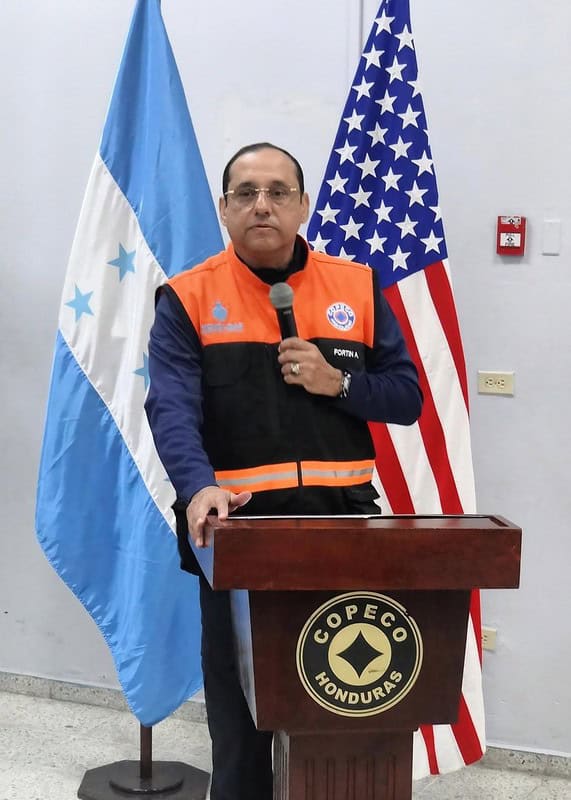
COPECO leadership in Honduras introduce new program objectives to stakeholders.
Photo credit: PDC
“Through this collaboration, our partners at COPECO will be empowered to independently leverage the best scientific tools and data to monitor and warn of hazards, as well as use PDC’s globally recognized scientific tools to apply to their own risk analyses. By increasing the national capacity to anticipate potential disasters and quickly mobilize resources, as well as promoting risk-informed decision-making that enhances future preparedness, resilience, and readiness, we will together create a safer and more resilient Honduras,” said Kuykendall.
Seeking new and innovative ways to leverage technology to better anticipate and manage extreme hazard conditions and their impacts on displacement, suffering, and myriad other threats, the Government of Honduras and PDC have reconvened to measure successes, calibrate existing approaches, and equip the nation with the scientific and technical tools necessary to create ongoing improvements.
“We have the honor of collaborating with Pacific Disaster Center who trained us in the use of its DisasterAWARE platform. This platform has a very important scope for the Secretariat of COPECO and gives us a tool in which we can view statistical data received by each of the regional offices at the national level. It also makes it easier for us to view hazard information in the moments before, during and after an emergency.
These data complement each other, and they are shared with the members of SINAGER, the National Risk Management System which manages all phases of disaster management in the country, creating the same operational information channel at the national level. We are grateful for the opportunity to leverage these tools PDC has shared with us, and we are eager to share and exchange information that will contribute to building safer communities across the whole of Honduras,” said COPECO Director of Operations Luis Salinas.
The new partnership project between PDC and COPECO will review the results of the first National Disaster Preparedness Baseline Assessment, verify and update critical data for decision making and integrate it within PDC’s DisasterAWARE system, as well as perform DisasterAWARE training, a Train-the-Trainer program, and finally a comprehensive immersion into how to conduct risk and vulnerability analyses utilizing PDC’s methodology. Additional opportunities for collaboration were also identified including the opportunity to conduct a future preparedness exercise with COPECO in conjunction with US SOUTHCOM’s Joint Task Force Bravo.
